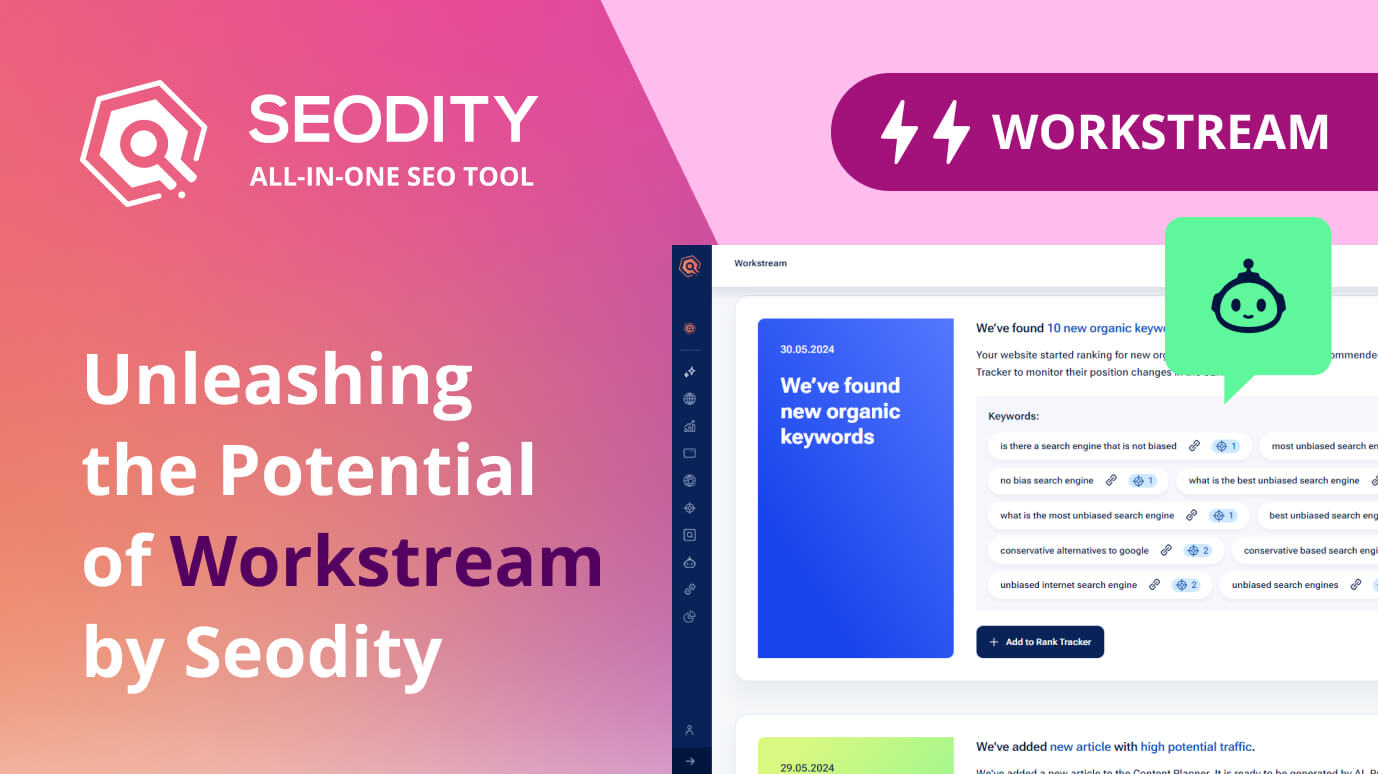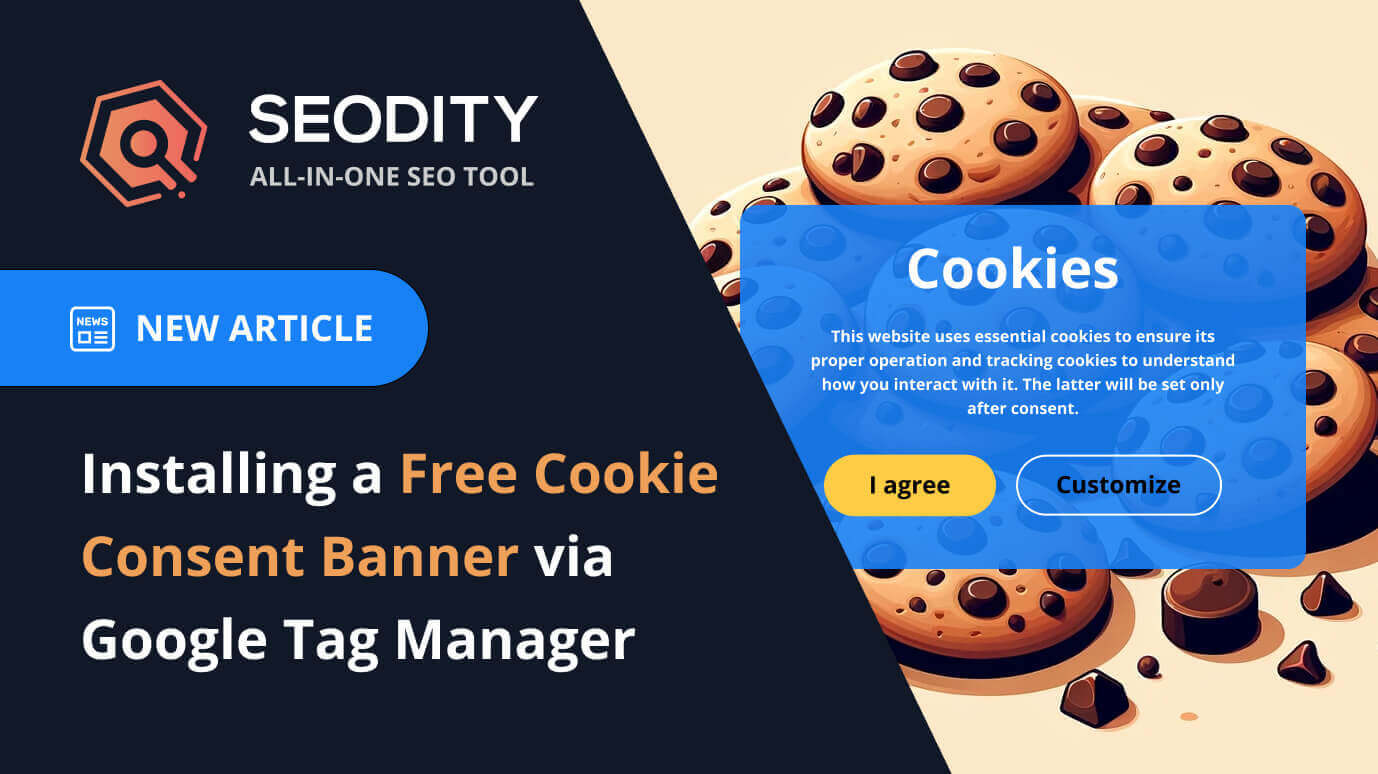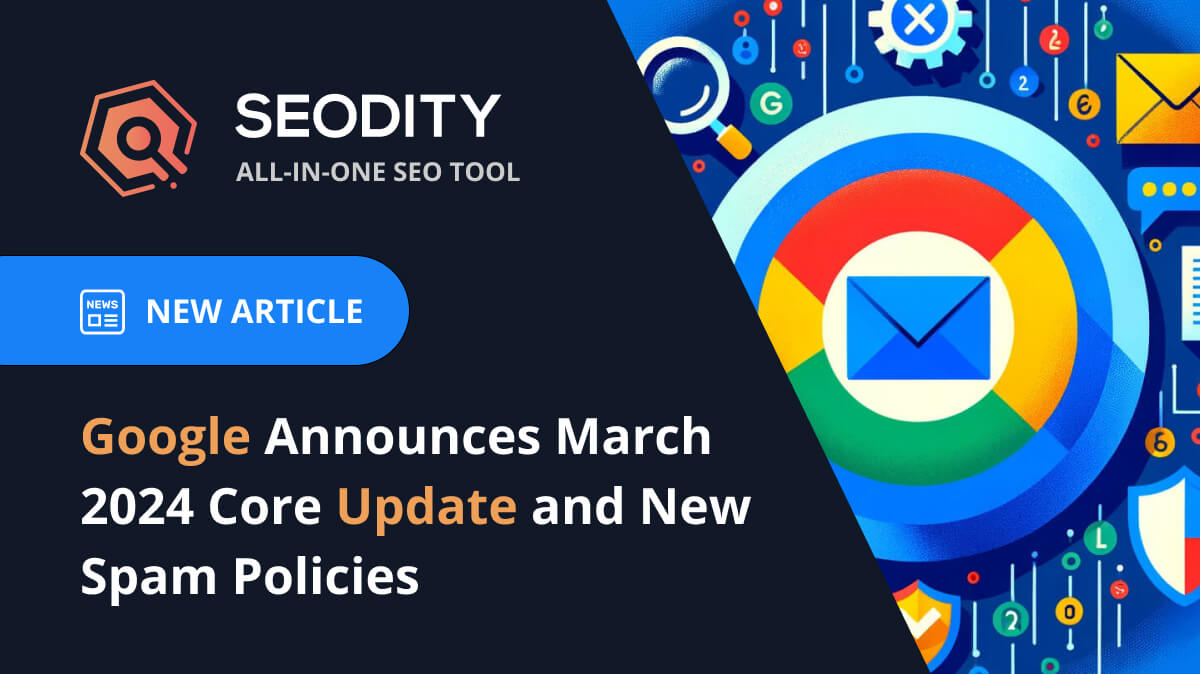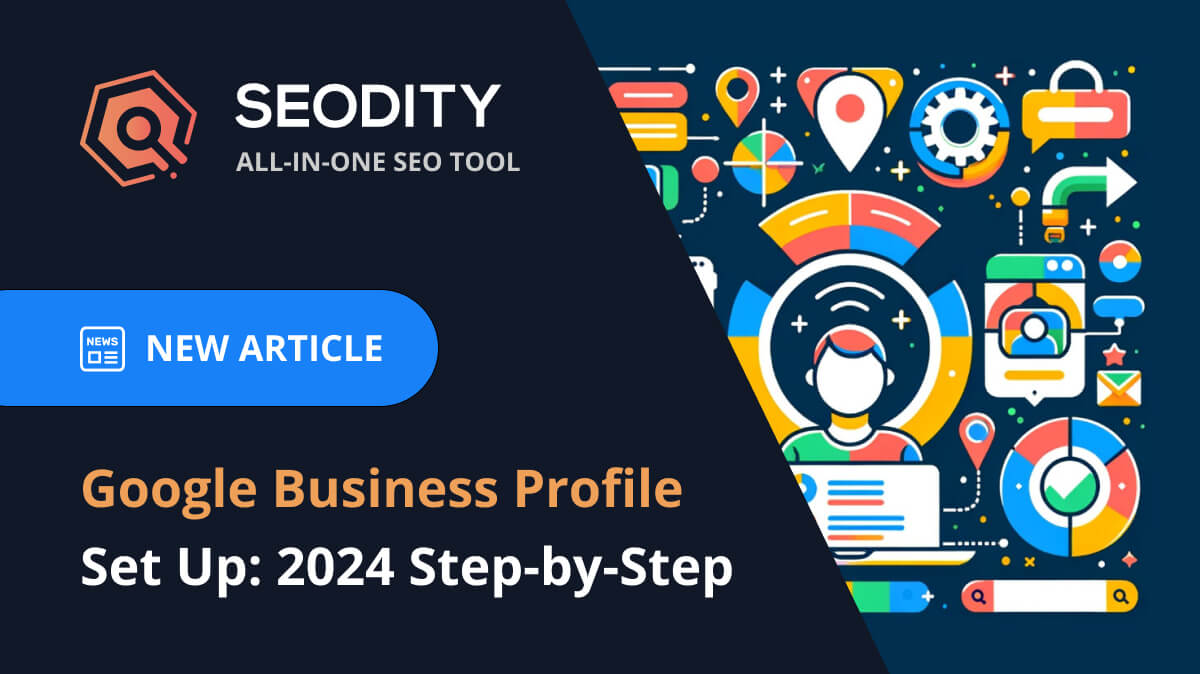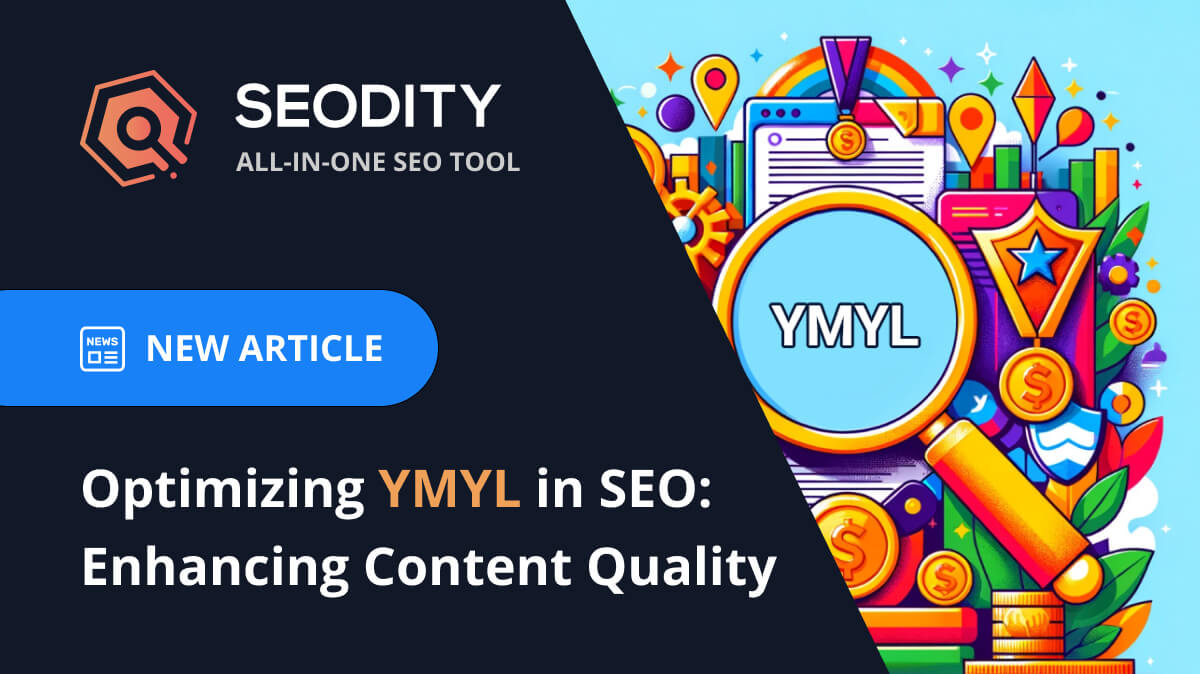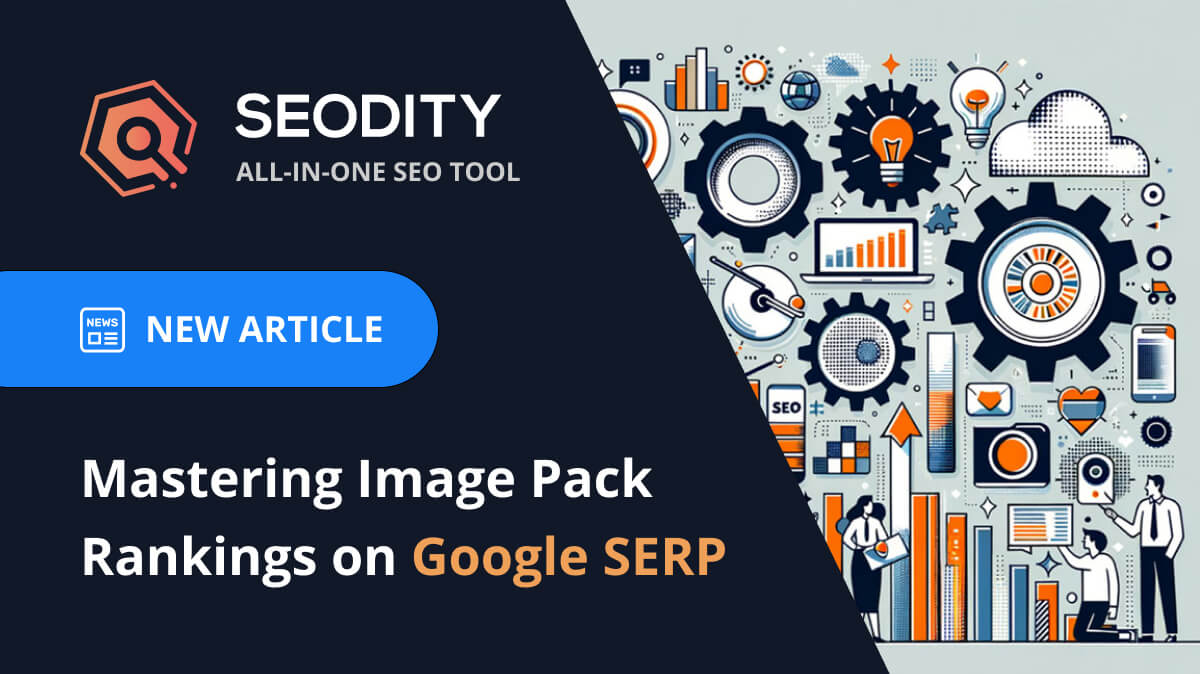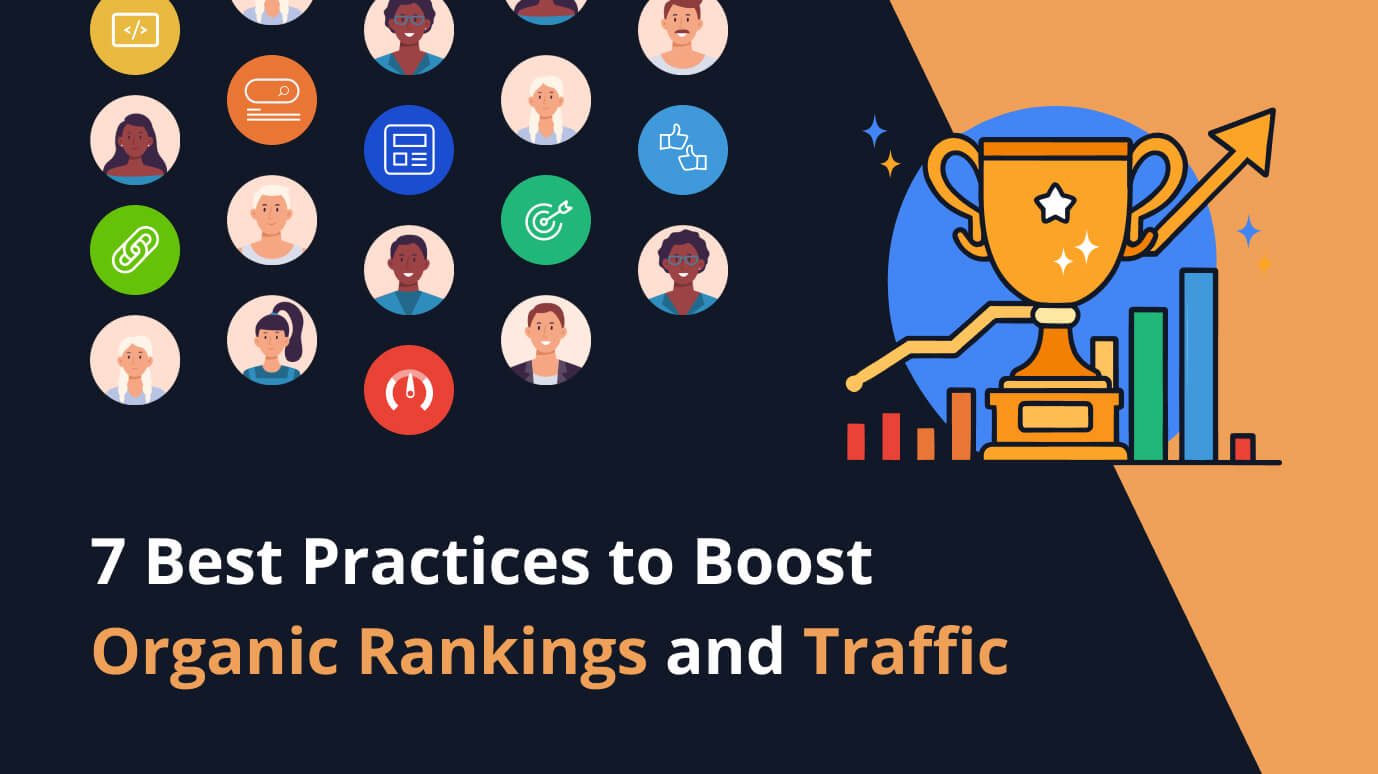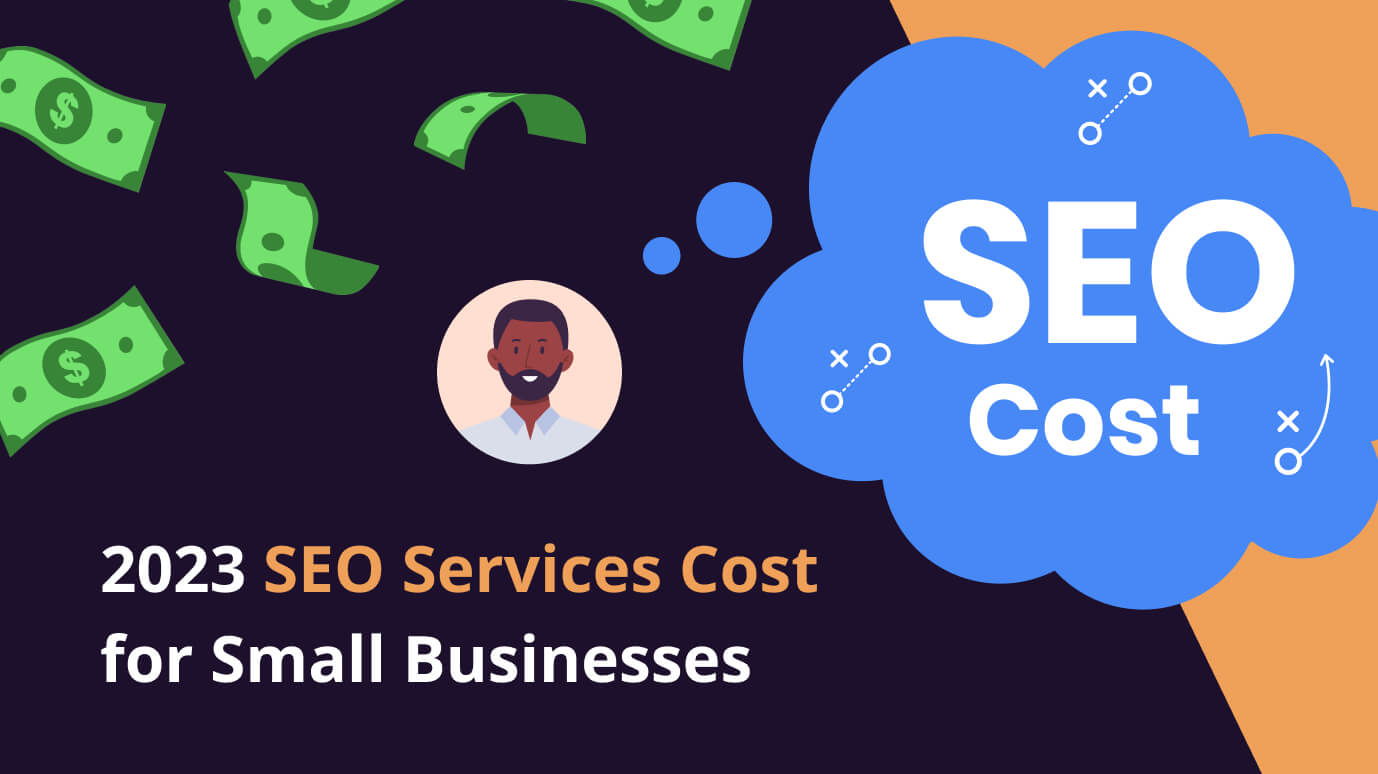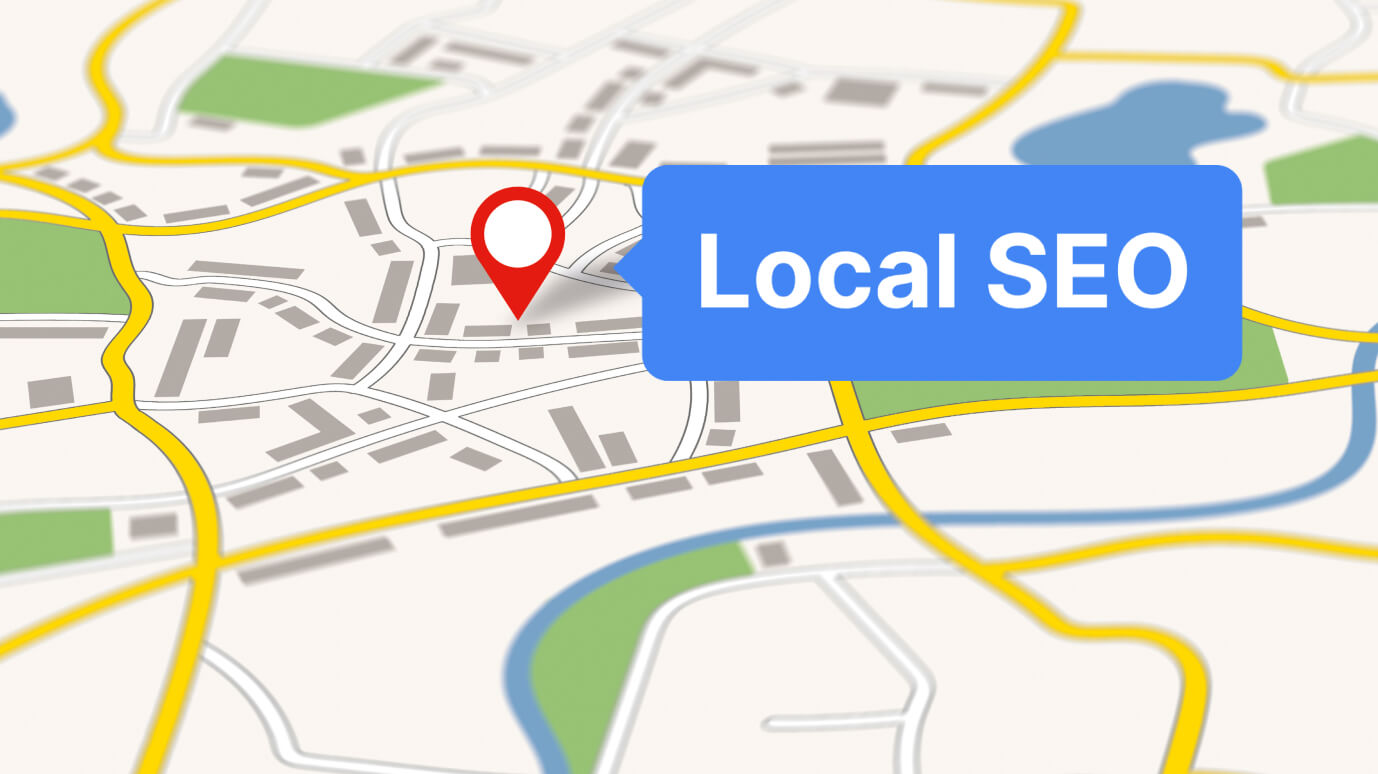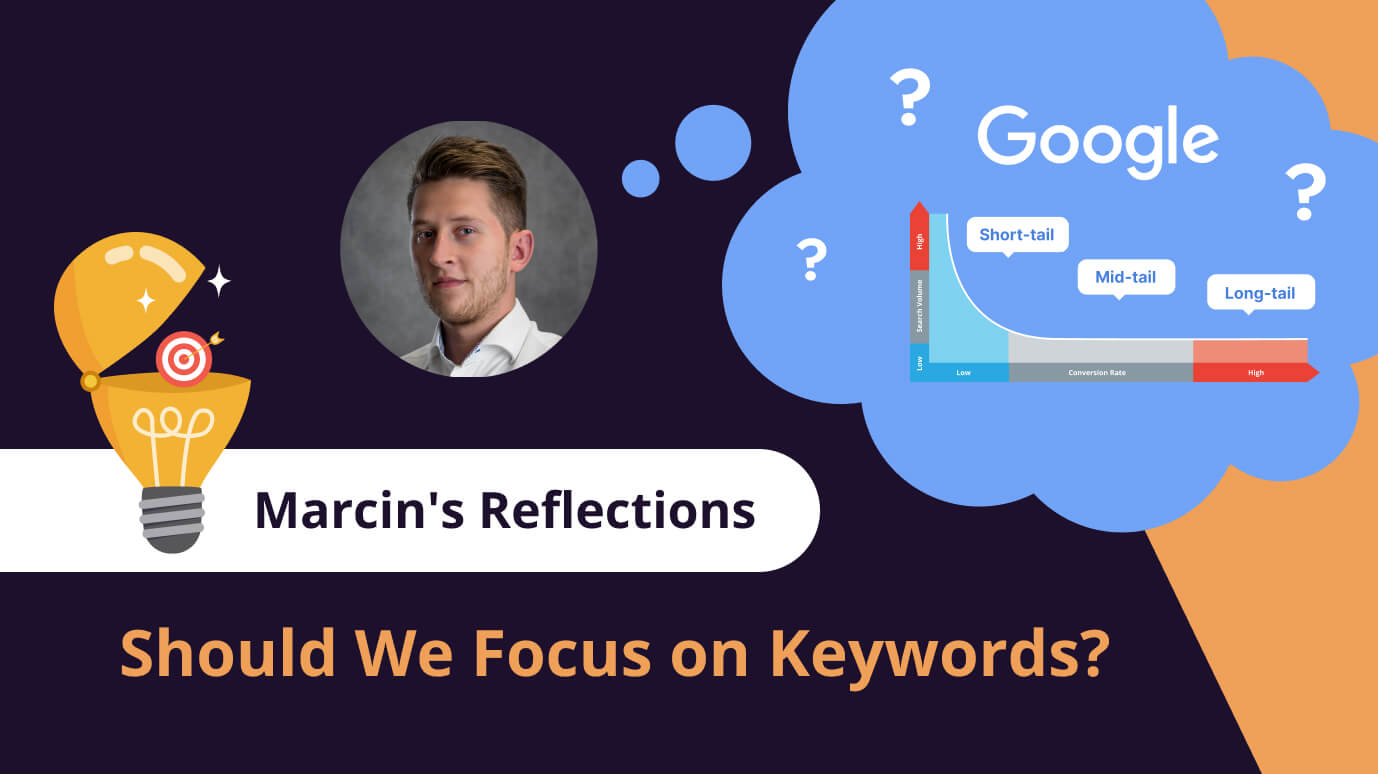
 18 min read
18 min read19 SEO Tips I Wish I’d Known When I Was a Beginner
SEO seems like a fairly straightforward job, right?
You set up a website that is fast and mobile-friendly. Then, you create high-quality content to attract visitors. Finally, you collect backlinks to get more link juice and boost your positions.
Of course, the devil is in the details.
The longer you are in the SEO game, the more patterns you discover.
But—
Do you really have enough time to learn everything on your own from scratch?
We collected almost twenty best SEO tips from search engine optimization veterans.
Here is the list of things they wish they had known when they were starting out:
- Don’t expect traffic without doing looking at data
- When choosing the type of content, make an informed decision
- Page speed alone is nothing without a good content strategy
- Focus on your searchers’ intent and the best way to answer their query
- Remember that web crawlers are our primary audience
- Use a keyword generator for identifying low-hanging fruit
- Try SEM to validate if you can turn traffic into sales
- Include answers to the People also ask questions in your article
- Think about the structure of your headings
- Keyword stuffing doesn’t work
- Always double-check the SERPs
- Embed relevant YouTube videos on your pages and blog posts
- Keyword difficulty is less relevant for local searches
- Wikipedia link rot can help your SEO
- 25% of SEO efforts should go into writing, 75% into outreach
- Original research, charts, and infographics get more links
- Monitor your clicks and impressions with Google Search Console
- Spreadsheets are lifesavers for every SEO professional
- There are no shortcuts and magic tools
First-hand experience is extremely important. But why shouldn't you tap into the knowledge of seasoned SEO professionals?
Let's go through their tips one by one.
1. Don’t expect traffic without doing your research first
I bet writing for SEO wasn't your childhood dream. No one thinks: "When I grow up, I will become an SEO copywriter."
Mostly we start out as bloggers or journalists. And before we discover search engine optimization tools, we simply want to write things that are interesting. And this tip from Hannah probably rings a bell or two:
Hannah BardenDigital Marketing Specialist at Bite Digital"One thing I wish I knew when getting started with content marketing and SEO was how to conduct keyword research. Before this, I was just writing loosely on a topic without aiming to rank for keywords. An example of this was some of my beginner blog posts that contained no keywords and got no traffic. As I gained more experience and knowledge, I learned how to use different digital marketing tools. From that point, I was able to figure out which ones would be best to rank for based on keyword difficulty and volume."
Normal writing is like playing cards. You never quite know what will turn out to be successful and you need a lot of luck to win. But SEO copywriting is more like a game of chess. Everything is out in the open and the results depend on your strategy.
If you want to check the volume and difficulty of a specific search phrase, there are many tools available. You can even try our own free keyword generator.
2. When choosing the type of content, make an informed decision
Keyword research alone will not give you all the answers to all the questions. The type of content you decide on is crucial.
"When googling your target keyword, check the top result. Is it a product page, a product review, a list article, or a “how-to” blog post? You’ll be able to find what type of content you need to create so you can rank on search engines. So many times we made the mistake of thinking about our own interests. For example, we created a product landing page because we know we have higher conversion rates with those. But the other results on Google were more or so blog posts."
It is a quite widespread practice to create landing pages where articles would be more appropriate. There is a huge difference between keywords such as best tools to check backlinks and free backlink checker.
3. Page speed alone is nothing without a good content strategy
This is another common SEO mistake. People who want to improve their position in Google think that a good web developer will be able to sort out all of their problems.
Focusing only on technical aspects of your site won’t get you anywhere.
While Core Web Vitals and page speed are very important, they are only part of the solution.
"I used to be a consultant for a large furniture company with a very old web stack. After thousands of dollars spent on engineering time to optimize their site to the PageSpeed gold standard, we didn't see the growth in traffic—they promptly dropped us. Nowadays, I focus more on content strategy and proper keyword targeting as my means of growing traffic, as well as healthy white-hat backlinking campaigns."
Sometimes this can be a hard and expensive lesson for the client. But having good on-page SEO is like having a good ship. It won't do you much good without a good captain and a reliable crew to rely on. That’s why you need content marketing experts too.
4. Focus on your searchers’ intent and the best way to answer their query
The very essence of good search engine optimization is giving people exactly what they are searching for. They can formulate their queries in very different ways. But the searcher's intent behind the queries is what you should really be able to decipher.
"In all my years working in content marketing, I have consistently found, time and time again, the best performing content is content that thoroughly and accurately answers the reader's question. I recommend that any content marketer writing a piece of content think first, if I was reading this blog, ebook, or content offer, what would I want to know, and how would I want to read it?"
You should remember that it is a mistake to create several articles that address the same searcher's intent. For example, keywords such as how to generate backlinks and how to get backlinks don’t require separate pieces. You can google both variants and see for yourself that the results are the same.
5. Remember that web crawlers are our primary audience
Ultimately, the most important thing is to write for people and give them content that they find useful. That’s how you win the SEO-game long-term.
But—
Your website will not be successful with readers if they never find it!
Quimby MeltonCo-Founder & CEO of Confection,a privacy-first data generator"If we want to reach people, we have to create for bots. SEO is the framework that helps us do that well. Creatives tend to be especially hostile to this idea. But in the 21st century, we reach the human audiences we need by giving web crawlers what they want. We write for web crawlers first (and directly) and we write for human beings second (and indirectly)."
This is a hard truth to swallow—but a truth nonetheless. Writing that is anecdotal and full of digressions is great for traditional journalism and editorials. But it doesn’t work with SEO! If we start our article about business ideas with a long allegory about dinosaurs, the bounce rate will go through the roof. And it won’t rank too well at all.
6. Use search engine optimization tools for identifying low-hanging fruit
There are two schools of SEO. According to one, you should not worry about keyword difficulty at all. Just create content that is relevant to your target market and be patient. The second approach tells you to mix things up and cover some easy queries with low keyword difficulty first.
"I wish I had discovered the power of proper keyword research sooner. Google can send you swarms of traffic for years. Keyword tools tell you monthly search volumes and whether you can beat the online competition for readership or not. Beginners should go after low-hanging fruit—keywords with a small number of monthly searches and low keyword difficulty."
Low keyword difficulty means that you can expect to rank high even if your domain has low authority and only a handful of backlinks. Tools like Seodity allow you to check the keyword difficulty (KD) of specific keywords.

7. Try SEM to validate if you can turn traffic into sales
Seasoned SEO professionals will tell you that website traffic is a vanity metric. It does not matter what kind of traffic you have. What matters is how many sales you've managed to generate with it.
"Take the time to analyze your marketing data! Creating content that is engaging and gripping is important, but if it content isn’t turning into sales, something is wrong. And you need to figure out what. Monitor the habits of your consumers through SEM before investing too much into organic SEO."
Before you start collecting backlinks AMD writing 200 blog articles, try a simple experiment. Write some articles and run Google Ads on them. Check your conversion rate. Try to estimate your potential sales based on your results and the volume of keywords that you hope to rank for. It should help you decide if SEO can be a good acquisition channel for your business.
8. Include answers to the People also ask questions in your article
When people are looking for information on how to open a restaurant, they usually have a lot of additional questions in the back of their minds. Where to get the products? How much will it cost to rent a place and hire cooks and waiters? Do I need a permit?
A good article will answer the main question. But a great article will anticipate and give answers to all the additional questions in order to cover the topic. You can use the People also ask suggestions from Google to make your pieces more comprehensive.
"Implement the people also ask snippets into your headings or as FAQs in the end. This helps boost your ranking for that particular keyword."
Here is an article on starting a photography business by Enina. It covers all of the major questions that are related to the main query.

This technique is very easy to implement in your writing. And you can find out additional questions for free by using Google. It doesn’t get much simpler than this.
9. Think about the structure of your headings
Everyone knows that you have to put keywords in your headings. You should try to use different variants of keywords related to your searcher's intent. But there is something that many budding SEO specialists completely forget.
"The more hierarchical you go with your headings, the better the article ranks in the search engines. I've tested this out on numerous articles on different sites—starting with a rather flat header structure (H1 and H2's), and then 6-12 months later adding in H3's and sometimes H4's. In over 80% of the cases the traffic for the article has increased after I've made these changes."
Google really likes organized and well-structured pieces of content. And using H3s tells the crawlers that you know what you are doing. Also, going deeper into the structure allows you to write more natural headings without keyword stuffing. Which is a good thing because—
10. Keyword stuffing doesn’t work
Once upon a time it was easy to fool search engines. All you had to do was write the word sex in white at the bottom of the page a hundred times on a white background and you could get tons of free traffic. It was invisible to visitors but was enough to trick the search engines.
Fortunately, everything is better now and Google bots are much smarter.
For example, this very article is about SEO tips, but it doesn’t need to use the main keyword at all. And Google will still be able to figure out that it is about tips from SEO experts.
Why?
Because keyword density is a secondary factor.
"One of the biggest illusions I had while I was beginning with SEO is that keyword density matters. I believed that you really should use a keyword a certain number of times in order for a piece to rank. Over time, I realized that this is not the case. Nowadays, I know that you only really need to mention the keyword in a handful of places. The thing that really matters is the relevance and the quality of content."
For example, this article about building your online presence by Nadiia doesn’t use the main keyword too many times. It focuses on delivering comprehensive knowledge about the topic.
11. Always double-check the SERPs
Sometimes SEO experts can't see the forest for the trees. It happens to the best of us! Once, I wrote a piece about proactive customer service—which I thought to be the very opposite of reactive customer service. I didn’t notice that there is a company called Proactive and people who google the query simply want to contact their support team.
But I’m not the only one.
"Look at the search results page first! I wasted so much time going after queries that brought up brand results or were going against super high-authority websites that our websites would have no chance competing against. It's like checking the weather. You can have all the fancy bells and whistles to track your data but until you walk outside and make sure it's not raining, you're not 100% sure what's going to happen."
Sounds reasonable, doesn’t it? Sometimes, you get so buried in data and analytics that you forget the basics. This is a typical beginner's mistake when it comes to SEO. And googling the query should always be a step in your process.
Extra Tip: Google shows different results for every user and your search results may be slightly biased. Try using incognito mode or turning off Google’s personalized results with the psw=0 parameter. Adding this and other parameters at the end of your URL makes the results more neutral. For example, https://www.google.com/search?q=content+marketing&pws=0&hl=en probably shows different results than https://www.google.com/search?q=content+marketing. Give it a try!

12. Embed relevant YouTube videos on your pages and blog posts
Content marketers and SEO specialists know that readers like pretty graphics. But they keep forgetting that there is something even better than images—videos!
"We published a video and embedded it on the relevant page of our site. Without any other changes to the page, within one week the page rose two spots in the SERPs up to #2. It was incredible. That was my aha moment when I realized the power of YouTube for on-page SEO purposes."
This is a golden piece of advice indeed. Visitors who play the videos embedded into your articles tend to stay much longer than those who only read. And you should also remember that Google owns YouTube. While this is only a theory, adding YouTube videos usually makes Google bots happier. John is not the only SEO expert who noticed this phenomenon.
13. Keyword difficulty is less relevant for local searches
This tip is particularly valuable if you are involved in promoting a local business. Even when your city is not specified in the query itself, you can get massive traffic from this type of general search queries.
Amelia MorganFounder of All That Website Stuff"New people to SEO always make the same mistake. They assume their site is too small or they don't have the power to go after massive volume terms. This is outdated thinking, especially if you are targeting Local SEO. I made this mistake, and I have seen hundreds of others make the same mistake. It doesn't matter if it is your first blog post or piece of content. Go after the biggest, highest volume term that makes sense. Google will boost your ranking for people searching close to you."
You can try it yourself. When people google things like pizza close to me they get results based on geolocation.
14. Wikipedia link rot can help your SEO
This one will probably raise your eyebrows.
What? Wikipedia? I thought that all backlinks from Wikipedia are no-follow links. Isn’t that the case anymore?
Well, it still is. But no-follow links are good for SEO too. While they don’t have a direct impact on your authority and they don’t have any juice, you shouldn’t ignore them altogether. Just like social media signals, they have a big impact on your site authority. There are many indirect benefits of no-follow links and it has been proven that they work.
And one of the easiest places to win some no-follow links is Wikipedia.
Eduardo PerezFounder of Musician Authority"There is one good method to associate yourself or your brand with Wiki, and that is by finding opportunities for link building on their articles from broken sources. They have a specific website for broken links, so finding them is simple. The editors, who are committed to giving the highest quality information possible, will go to great lengths to ensure that your article is at least as good as the one before it."
Eating at fancy restaurants is fine but you shouldn’t refuse a free all-you-can-eat buffet lunch. In a similar manner, while you work on your SEO it is perfectly fine to grab some easy no-follow links from Wikipedia.
15. About 25% of SEO efforts should go into writing, 75% into outreach
In many companies, there are more outreach professionals than content writers. It is a perfectly healthy proportion. 10 great pieces of content with 1000 backlinks are far better than 1000 blog posts with 10 backlinks between them all.
Many SEO experts need some time for this truth to sink in.
Brian RobbenCEO of Robben Media"Initially I believed content is king and focused 100% of my time writing blog posts to drive traffic. While this worked and it drove millions of page views over time, I later discovered the power of backlinks. By getting other sites to link to core pages, your page and website authority improves. This creates a ripple effect to help rank your site for keywords much more than creating more content can. So if I had spent 75% of my time promoting my content and 25% creating it, I'm convinced my traffic would be five to 10 times bigger. "
There are many things you can do to promote your content and earn links. Which brings us to our next SEO tip, namely—
16. Original research, charts, and infographics get more links
Most media outlets are not keen on linking to other websites unless they have a clear benefit from doing so.
That’s why winning backlinks can be a tough job.
But there are two situations when they simply have to acknowledge their sources:
- When they quote somebody
- When they refer to specific research or statistics
You can win the first type of links when you are an authority in your field. But if you are just starting out, you may want to focus on publishing original research instead.
Gerald LombardoHead of Link Acquisition at GR0,Co-Founder of The Word Counter"We frequently use original research and data in our content. The data is fact-based and usually displayed in visual charts that tell a story. This makes it easy to convey the findings and it is differentiated from normal text. The uniqueness is the key and it must add distinct value."
It is not that difficult to run a survey on your website. Think of an interesting topic, ask some questions to collect responses from your visitors, and prepare a report based on your research. You can prepare a survey with Google Forms and distribute it online via different channels.
17. Monitor your clicks and impressions with Google Search Console
SEO professionals frequently forget about one important issue. Even the best keyword research tools give you estimates and not the real numbers behind search queries. That is why monitoring actual clicks and impressions of your website is so important. Raw data doesn’t lie.
Harris RabinChief Commercial Officer of R3SET"We use Google Search Console to monitor search queries on our posts. Then we repurpose those posts for fresh content by updating them with a piece of new information or data and adding in more long-tail keywords related to our visitors' searches. We'll then brainstorm satellite topics for our older posts based on our visitors' search queries to write up new articles that we can link together."
This happens a lot. You ignore a search term because its search volume is in the range of 0-10 monthly searches. Then you write a piece on a related subject. And, by accident, you discover that the actual number of monthly impressions for that specific keyword is in the range of 100-1000 or even higher.
Google Search Console is also very helpful when you want to update a piece and cover some additional aspects. You should always start with using some of the search terms that your piece is already ranking for.
18. Spreadsheets are lifesavers for every SEO professional
Some people hate spreadsheets. They mostly associate them with school and boring calculations. But usually you only hate them until you are forced by circumstances to use them. And then you discover that they really help you save time and do things more efficiently and accurately.
David ZimmermanSEO Consultant, Reliable Acorn"I wish I would have taken more time to learn Excel when I started doing SEO. Now that I've been doing it for over 13 years, I use Excel on a daily basis. It's not only helpful to do advanced analysis with your website traffic and conversion data, but Excel also allows you to do things like write Title Tags and Meta Descriptions in bulk. For instance, I just completed a project where I had to write over 1600 meta descriptions for a website. I don't know how I could have managed this task without Excel."
While we primarily use Google Sheets at Seodity, we do agree that spreadsheets are a gift from heaven. You can even use some basic web scraping techniques like importing XML data from your competitors’ websites.
19. There are no shortcuts and magic tools
At the end of the day, SEO is more about the skills and techniques you use, not the tools themselves. In fact, tools can be a distraction.
Jeff WebsterOperations Manager at Clicks Marketing"I was always looking for shortcuts to rank higher and faster. If a new tool or service came out that said it could give me a shortcut, then I had to try it. The end result was a lot of failed websites, including a few that got penalized. What I learned from this is that shortcuts don't work for long term success. The basics of SEO aren't sexy and they take time to work their magic. But if you focus on the basics, then you can't go wrong."
We could not have put it better ourselves.
So, did you enjoy our selection of search engine optimization tips?
What is your favorite SEO trick or technique that helped you boost traffic on your website?
Leave a comment below or contact us. We can’t wait to see your responses.
If you want to get more traffic on your site and make your SEO and content marketing efforts more effective, we can help you out. Get Seodity for free to try our experts’ tips in real-life situations.

Kazimierz is a tech journalist and content marketing professional
.svg)






















